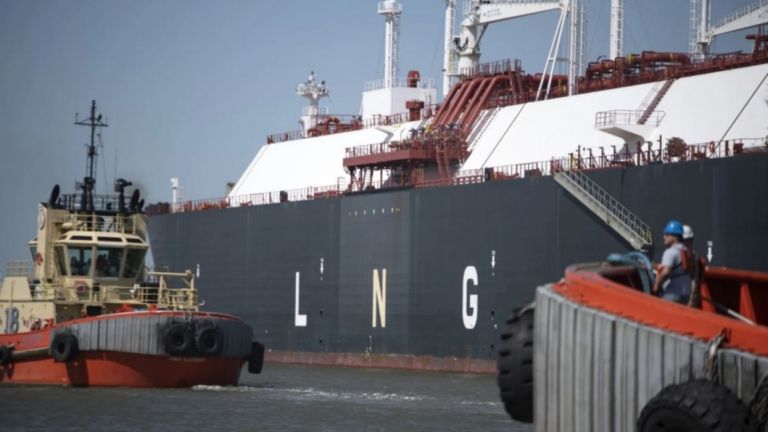Greece emerges as a key energy hub: the new chessboard of Alexandroupolis, LNG flows and regional shifts

Πηγή Φωτογραφίας: AP Photo//Greece emerges as a key energy hub: the new chessboard of Alexandroupolis, LNG flows and regional shifts
The new energy chessboard of the Eastern Mediterranean
Greece is increasingly positioned at the center of a rapidly evolving energy landscape that extends far beyond the Eastern Mediterranean. New LNG agreements, upgraded Balkan interconnections and shifting geopolitical dynamics—driven by Europe’s gradual decoupling from Russia and the deepening US footprint—are transforming the country into a critical node in the broader European security and diversification framework.
The Greece–Romania–Ukraine agreement and the rise of Alexandroupolis
The recent deal enabling gas flows from Greece to Romania and Ukraine through Alexandroupolis and the Vertical Corridor signals a decisive turning point for the region. The European energy map is now being redrawn horizontally and vertically—and Greece stands at the crossing point.
The practical significance of the deal:
- Supply stabilisation for countries seeking dependable alternatives to Russian gas.
- Deepened regional cooperation, with Greece functioning as the main entry and transit point for Southeast Europe.
- Strategic elevation of the Alexandroupolis FSRU, which now operates as a regional security asset rather than a national project.
This shift bolsters Greece’s geopolitical relevance at a time when energy security has returned to the top of the EU agenda.
Offshore exploration in the Ionian and Crete: beyond national interests
Hydrocarbon exploration in the Ionian Sea and south of Crete is gaining broader European significance, as the EU looks to secure additional supply sources within its own periphery.
While still at an early stage, these projects matter because they could:
- complement future LNG imports,
- reduce strategic vulnerability in Southeast Europe,
- and create an internal Mediterranean production–transit axis with Greece at its center.
In essence, Greece is transitioning from a simple transit country into a state with upstream, midstream and downstream strategic weight.
Long-term US LNG agreements: a new transatlantic anchor
The 20-year LNG agreement between Atlantic–See LNG Trade and Venture Global represents the second strategic pillar of Greece’s new energy identity.
Although only limited volumes are destined for the domestic market, the broader impact is clear:
- Long-term anchoring of US LNG in the regional energy system.
- Strengthening of Greece as an intermediary hub, directing northbound flows toward Bulgaria, Romania, Moldova and potentially Ukraine.
- Consolidation of a Balkans–Eastern Mediterranean axis, reducing systemic exposure to Russian supply networks.
Paired with the Vertical Corridor, this positions Greece as a fundamental gatekeeper for incoming LNG destined for Europe’s most vulnerable markets.
The EU ban on Russian gas from 2026: a new regulatory environment
The EU’s decision to fully ban Russian natural gas imports from early 2026—combined with the new origin-certification mechanism—marks a structural shift in the continent’s energy architecture.
Greece plays an active role in implementing this framework, which:
- restricts both direct and indirect Russian gas inflows,
- enforces transparency in LNG sourcing,
- and increases the strategic value of EU-aligned entry points, including Greek terminals and interconnections.
This transition elevates Greece’s infrastructure—Revithoussa, Alexandroupolis, Sidirokastro, Kipoi—into certified entry gates for Europe’s new energy regime.
A long-term geopolitical rise
These developments represent far more than a sequence of technical agreements. They form the backbone of a new energy map in which:
- Greece becomes a central LNG hub,
- strengthens its influence across the Balkans and Eastern Mediterranean,
- actively contributes to the EU’s post-Russia strategy,
- and positions itself at the heart of a decade-long geopolitical transformation.
Alexandroupolis, the Vertical Corridor, FSRUs, US LNG partnerships and EU regulatory shifts together constitute the most coherent energy strategy Greece has advanced in the modern era.
Source: pagenews.gr
Διαβάστε όλες τις τελευταίες Ειδήσεις από την Ελλάδα και τον Κόσμο






Το σχόλιο σας